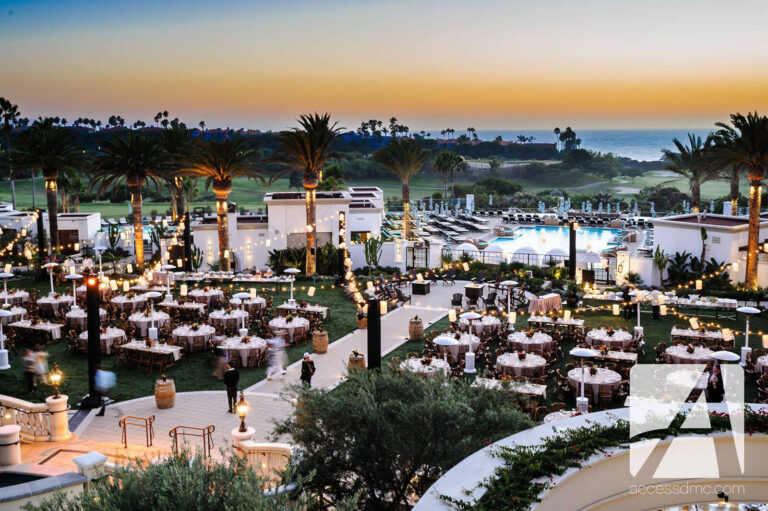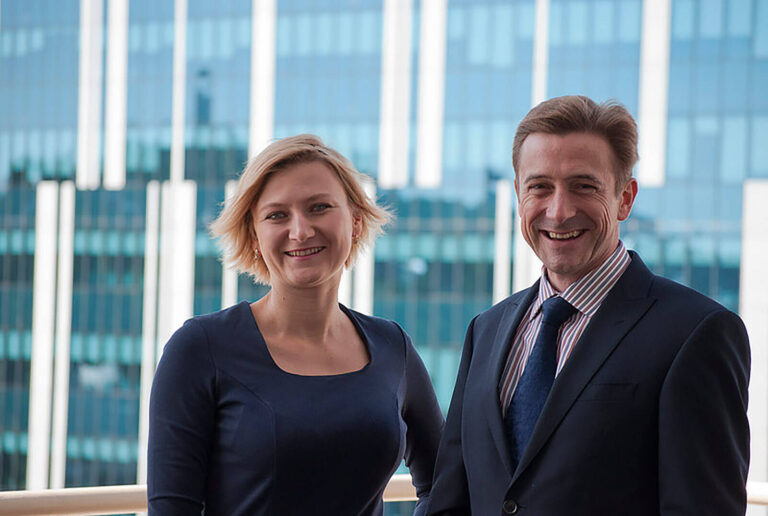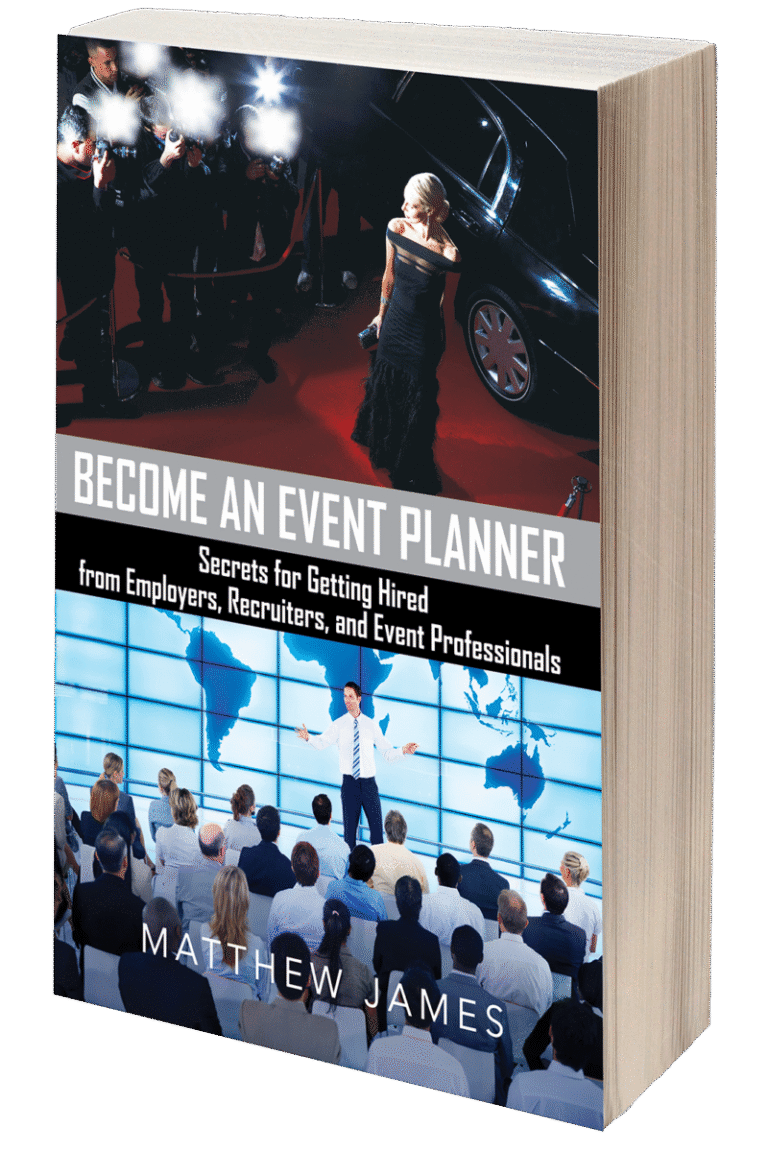How to Become a Corporate Event Planner
In this section you will:
Corporate Event Planning Careers
It’s worth point out that in many countries outside of the USA, the term ‘meeting’ is often used interchangeably with ‘conference’, and as such, ‘meeting planners’ are often just referred to as ‘corporate event planners’—or sometimes even ‘conference organizers’ or ‘conference & exhibition organizers’.
There are several different ways you can work as a corporate event / meeting planner:
in-house Corporate Event Planners
Most large corporations—banks such as Goldman Sachs, law firms like Baker & McKenzie, tech firms such as Google, pharmaceutical companies like Johnson & Johnson, telecoms companies such as AT&T, or energy companies such as Shell—will have their own in-house team of corporate event planners to organize everything from meetings and conferences, to client entertaining and employee holiday parties.
Agency Corporate Event Planners
Some corporate firms outsource the organization of their meetings and corporate events to an event management agency.
For example, Goldman Sachs use First Protocol Event Management for all their events, Walmart used Jack Morton Worldwide for their annual shareholders meeting, and Cisco use George P.Johnson for their Cisco Live! convention.

Other corporate firms will keep a roster of different event companies that specialize in particular types of events. For example, for a conference they might use an event production company such as H2 Business Communication, whereas for holiday parties they might use an agency such as Ultimate Experience, and for team-building event they might use Event Wise.
Destination Management Companies
If the event is to be held on location—in another city or country—away from the company’s usual place of business, they might hire a destination management company (DMC) based in the city where the event is to be held. DMC’s are a type of event management company that offers local knowledge and expertise. We’ll look at these in more detail in the Incentive Travel sector of the Industry.
Freelance Corporate Event / meeting Planners
Alternatively, in the case of smaller companies or those that don’t organize events very often, they might hire an independent contractor or ‘freelance’ meeting planner—rather than an agency—to organize their events for them.
Corporate Event Planning Jobs
Below are examples of some of the most common job titles used in the corporate event planning sector of the events industry—in descending order of seniority—along with the equivalent titles for those working specifically as meeting planners. Note that there are often more than one Vice President /Assistant Vice President in an in-house corporate events team—it’s one of those titles that sounds a lot more fancy than it really is!
corproate event planning job titles
Being a Corporate Event / Meeting Planner
Many people regard corporate events as the boring side of event planning; why work on meetings and conferences when you can work on film premieres and product launches?
Well for a start, the majority of jobs in the event industry are in corporate events and meeting planning—and, to be really frank, the pay is much better. Plus it comes with nice perks and benefits! That’s probably what most meeting / corporate event planners will tell you if they’re being really honest.
Corporate events and meeting planning are great if you want the adrenaline rush of planning large-scale—often logistically challenging—events in a face-paced environment, but you also want all the benefits of a ‘proper’ job. That is, a higher salary, better job security, healthcare, pension, business travel & accommodation, and comfortable modern offices—often with on-site facilities and amenities such as a free / subsidized gym, crèche, canteen, dry cleaning, and parking spaces.

The compromise of course, is that you won’t be working on the most creative events. Corporate events and meetings are, for the most part, ‘safe’ and traditional. They’ll often have very high standards; luxury food, travel, and accommodation, but they are typically aimed at business professionals in their 30’s, 40’s, and 50’s+, and, as such, will not generally be the most innovative, edgy, or experimental of events. For some event planners, that’s absolutely fine. Not everyone is drawn to the industry because of the creative side; many are in it because they want to use their organizational and project management skills.

meetings & Corporate Events Aren’t Boring
That doesn’t mean meetings and corporate events are boring. Ok, some are. But even when you might find the event itself is boring—a tax law conference for a group of middle-aged lawyers for example (yawn!)—often the event planning process is still very stimulating.
That tax law conference might be held at a luxury 5 star hotel in Hawaii, followed by an open-air dinner on a private beach with hula lessons. You might need to create an attention-grabbing Hawaiian-themed invitation, book a cool band, or devise a program of exciting activities and excursions around the conference—such as surfing, snorkeling, whale-watching, swimming with dolphins, helicopter tours over the islands, or tours of Diamond Head Volcano and Pearl Harbor.
Although guests are there for business, meetings and corporate events still need to be enjoyable—otherwise people won’t come. The host company still needs to ‘sell’ the event to potential attendees with an attractive proposition—and that’s often where the event planner has to get creative.
meetings & Corporate Events Still Need to be Creative
In meeting / corporate event planning, the creative elements might be the location and choice of venue, the exclusive content offered at the event, and the innovative way it’s delivered—perhaps using new technologies such as virtual reality, 3D holograms, or 3D projection mapping. Alternatively, it might be the program of entertainment, activities, excursions, and social events on offer. Believe me, the more boring the topic of the meeting / conference, the more the host company will need to go all-out with the other elements if they want people to attend.
When I worked as a meetings and corporate event planner in-house at the investment bank Credit Suisse, there was a reason we held winter conferences in luxury ski resorts!
And that’s one of the great trade-offs with meeting planning; although there are less of the traditional creative elements, such as décor and styling, often these are replaced with more travel opportunities.
As a corporate event planner, it’s really your job to make sure meetings and corporate events aren’t considered boring. It’s down to you to put forward ideas and suggestions to make them as creative as they can be—within the confines of the budget, business objectives, corporate identity, and target audience.
You might do that by choosing a desirable or unusual location, an unconventional venue, a stimulating format, style, and tone—with the use of exciting new technology, innovative invitations, gourmet catering, and interactive elements.

Creative Corporate Events
Coming from a special events background, when I worked as a meetings and corporate event planner I went out of my way to make those events as creative as possible. I brought many of the fun, innovate, and unique tricks and techniques from special event planning to the corporate events I produced—an approach that was usually very well received by the internal clients; because those ideas were often refreshing for them. Not only were some of the events fun and creative, there were also some nice perks that made the planning and delivery enjoyable too.
Some examples include:
Brazilian theme party
A drinks reception for clients of the Latin American Equities Team, who asked me to put together an event with a Brazilian theme. I hired a large conservatory venue that was filled with palm trees, shrubbery, and tropical plants so it had a rainforest feel to it. We served authentic Brazilian food—with some lethally strong Caipirinha cocktails—and hired a troupe of Brazilian singers and dancers for the entertainment. For a corporate event, it was a pretty wild party with clients being taught how to Samba!
winter conferences in luxury ski resorts
The Fixed Income Division held an annual winter conference that took place in various Swiss ski resorts such as G’staad and St Moritz. In addition to the conference itself, there were lots of evening events and activities, including: a sleigh ride across a frozen lake, a cable car ride up to a dinner at an exclusive private members ski-lodge on top of a mountain, nighttime skiing by torchlight, and fireworks. Plus, once all the delegates had been packed off on the final morning, the events team spent the rest of the day skiing before flying home that night.
luxury hotels in barcelona
The annual European Technology Conference held at the luxury 5 star Hotel Arts in Barcelona. The Hotel Arts is an amazing luxury hotel overlooking the Mediterranean sea, and although the event staff were due to stay in smaller, less glamorous hotels nearby, due to some last minute cancellations by delegates we ended up being moved into some of the private penthouse apartments of the hotel—which came with their own private butler and chef! In fact, Madonna was staying in one of the apartments at the same time.
I remember another year the program involved organizing a gala dinner, which was held in the underground Cava wine cellars and featured entertainment from two ‘dueling pianists’ positioned at each end of a long dining table. As they fought to outplay each other, Spanish flamenco dancers danced down the middle of the table.
a tour of europe
The European Equities Division asked me to create a reception and buffet dinner to entertain come clients. The client wanted the theme of the event to represent several different European countries including France, Italy, Germany, and Spain. So I created a series of themed areas in one large room, each representing a different country, with a food stall and bar serving authentic delicacies from that particular country; the French area served a selection of gourmet cheeses paired with different wines, the Italian area served rustic anti-pasta with Prosecco, the Spanish area served Tapas etc.
Then, to tie all the different themes together I presented the event as ‘A Tour of Europe’. Invitations took the form of personalized airline tickets with boarding pass reply cards. When guests arrived at the venue they found a theatrical airport scene complete with airport signage, check in desks, security guards, x-ray machines, and staff dressed as cabin crew serving welcome drinks from trollies before they ‘landed’ in the main room themed as various European cities.
the genius of rome
The bank sponsored a high profile, sold-out art exhibition at The Royal Academy of Arts called The Genius of Rome 1592–1623; a collection of Baroque paintings by artists such as Rubens and Caravaggio. Numerous private dinners were held in the gallery over several weeks, enabling the bank to entertain clients.
Working on those events was a nice alternative to the usual conference and meeting planning— where the focus is on delegate registration, transport, logistics, technical staging, and presentations. With these client dinners, the emphasis was on more of the traditional ‘party planning’ element such as invitation design, menu design, table styling, flowers and entertainment.
Some Events Won’t Be Creative
Of course, these examples are just a handful of meetings and corporate events I worked on.
For every large overseas meeting in Spain or Switzerland with evening events and activities, there were also plenty of run-of-the-mill one-day conferences held in business hotels (or even on-site at the bank’s offices) that involved none of the fun or creative elements. Plus, since the banking crisis in 2008, a lot of corporations have been scaling back their events, so in recent years fewer have been held in far-flung locations with extravagant entertaining and activities.
Therefore, if you’re going to work in corporate events, you need to be comfortable with the fact that a large proportion of the events you’ll work on will be traditional meetings and conferences—and that there’s a chance they may not include any receptions, dinners, or activities as part of the program.

That said, corporates still need to incentivize guests to attend their events and, as such, they will always be looking for ways to make them appealing. So, even if there isn’t an exotic location, standards still have to be very high—in terms of the production values, technology, venue, catering, and the type of entertainment—to ensure the event is a success.
This is especially true for client hospitality events. Most corporate clients tend to be professional, affluent people who get invited to special events all the time. Therefore, if a corporation is going to invite them to an event, it’s got to have something special about it. It might involve providing exclusive access to something; a prestigious society event, such as a polo match or a sold-out art exhibition, or it might be an exciting new venue; a private dinner at a recently opened Michelin star restaurant.
It’s fair to say that when the main objective of a corporate event is to entertain, it will always have some sort of prestigious, creative, or exclusive elements in order to impress the clients.
Pros of Being a Corporate Event Planner
To summarize, some of the advantages of becoming a corporate event planner / meeting planner are:
What it Takes to Be a Corporate Event Planner
In addition to the core skills required by any event planner, there are certain personal qualities required to work as a meeting / corporate event planner.
As in any corporate environment, there is a formality and professionalism that is expected. Not only do you have to present yourself in a certain way—in terms of your appearance; business suits and formal grooming—you also have to behave, speak, communicate, and interact with people in a business–like and professional manner.
Corporate environments are often very conservative where self-expression and showing emotions isn’t encouraged. My advice to anyone thinking about working in meetings and corporate events is to consider your personality type. Are you the type of person who is going to be comfortable working in a formal environment, day in day out, and dealing with senior executives and management?

If you’ve never worked in a corporate environment, it can be quite a culture shock. Having done it, I know it isn’t really for me, certainly not on a long-term basis. It was great to try it, and the pay certainly made it worthwhile, but I just prefer working in a more relaxed and informal way where the work environment can still be quite sociable.
Therefore, if you’re thinking about becoming a meeting / corporate event planner, remember to consider not only the type of events you’ll be working on, but also whether the working environment is going to suit your personality.
How to Become a Corporate Event / Meeting Planner
For more information on how to become a corporate event / meeting planner, check out this site’s companion book Become an Event Planner: Secrets for Getting Hired from Employers, Recruiters, and Event Professionals. Topics covered in the book include:
Topics covered in the book include:

In The Next Section…
04 Being a corporate event / meeting planner
What does a meeting / corporate event planner do? Read a real corporate event / meeting planner job description by Sharyn Scott, former Global Head of Events for International law firm Linklaters.